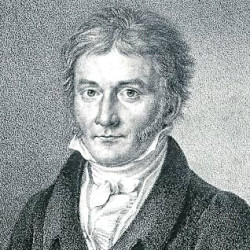
Carl Friedrich Gauss
German mathematician and astronomer
| Date of Birth | : | 30 April, 1777 |
| Date of Death | : | 23 February, 1855 (Aged 77) |
| Place of Birth | : | Braunschweig, Germany |
| Profession | : | Physicist, Astronomer, Geodesist |
| Nationality | : | Germany |
Carl Friedrich Gauss (কার্ল ফ্রিডরিখ গাউস) was a German mathematician, astronomer, geodesist, and physicist who contributed to many fields in mathematics and science. He was director of the Göttingen Observatory and professor of astronomy from 1807 until his death in 1855. He is widely considered one of the greatest mathematicians of all time.
Biography
Gauss was the only child of poor parents. He was rare among mathematicians in that he was a calculating prodigy, and he retained the ability to do elaborate calculations in his head most of his life. Impressed by this ability and by his gift for languages, his teachers and his devoted mother recommended him to the duke of Brunswick in 1791, who granted him financial assistance to continue his education locally and then to study mathematics at the University of Göttingen from 1795 to 1798. Gauss’s pioneering work gradually established him as the era’s preeminent mathematician, first in the German-speaking world and then farther afield, although he remained a remote and aloof figure.
With his doctorate in hand, Gauss was assured of the continued patronage of the duke, allowing him to pursue his mathematical and scientific interests with little concern for money. In 1801, he published two notable works. One was Disquisitiones arithmeticae, a treatise he had begun several years before and which was a comprehensive treatment of number theory. In it Gauss recounted the work of his mathematical predecessors, but also corrected all errors and shortcomings he found and included his own new contributions to the subject. The treatise served as a foundational text in number theory throughout most of the 19th century.
Quotes
Total 0 Quotes
Quotes not found.